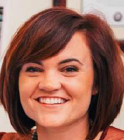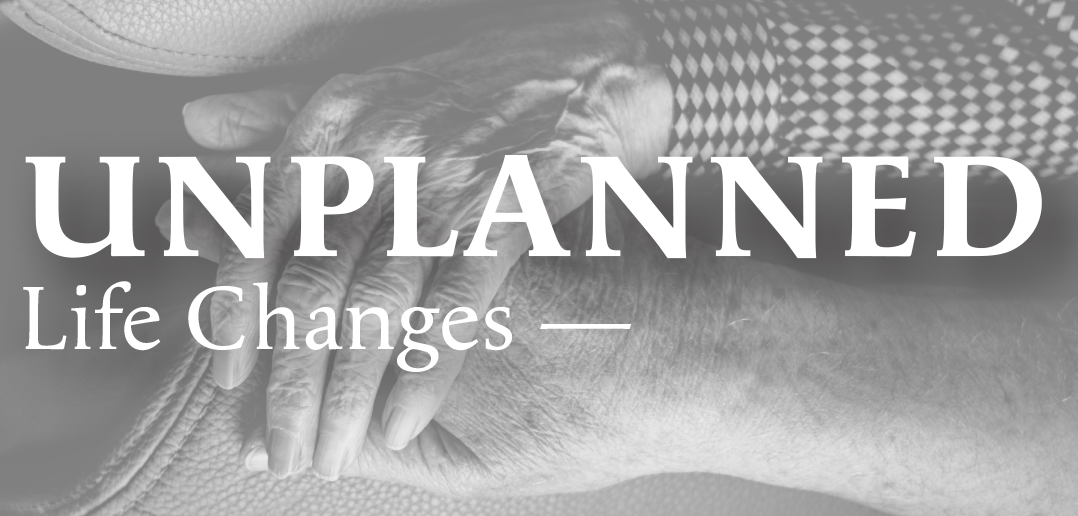We are told to “expect the unexpected,” – but how does one do that, really? Unplanned life changes can be uncomfortable and come with a string of emotions, ranging from anger and fear to helplessness and worry. It’s common to feel a sense of loss that comes with unexpected changes, as we are pulled away from what is familiar and comfortable. For seniors and their loved ones who find themselves in these situations, life can be challenging for some time as adjustments are made.
Local individuals offered some words of wisdom and encouragement for us to share with our readers, seniors and their loved ones who want to prepare for the event of unexpected changes – or those who may be going through unforeseen changes right now.
Specialized Memory Care
Alzheimer’s and other dementias progress differently in each individual diagnosed. For some, the decline may be very rapid and sudden. In the event your loved one with dementia unexpectedly needs additional care, Prairie Meadows Alzheimer’s Special Care Center (frontiermgmt.com/communities/prairie-meadows-alzheimers-special-care-center) is a wonderful option, providing exceptional person-centered holistic care to residents with cognitive impairment. This goes far beyond the minimal regulations of eight hours a day, and it eliminates any stress and anxiety a family may have when placing their loved one in memory care. Prairie Meadows is a homelike and freestanding memory care facility that specializes in memory care, secured courtyards, restaurant style dining and 24/7 on-site nursing.

Don Woods
Prairie Meadows
“Prairie Meadows partners with The Alzheimer’s Association by offering support groups for families with those in need of memory care,” said Marketing Director Don Woods. “The journey of memory care can be challenging. We are available to meet with families and share resources that will benefit families as they are on this journey alongside their loved one.”
Finding specialized care for those living with Alzheimer’s disease or dementia-related illness is an incredibly intricate and personal process. Prairie Meadows Alzheimer’s Special Care Center offers freestanding memory care and assisted living services with a team specially-trained in memory care. Prairie Meadows also utilizes the SPARK program.
SPARK was inspired by the teachings and research of Maria Montessori and Dr. Cameron Camp and provides meaningful and life-enhancing experiences for people with dementia or Alzheimer’s disease.
“The program engages their residents with proven rehabilitative strategies that strive to heighten interaction, optimize cognitive skills as well as promote a sense of purpose and accomplishment,” Don said. “SPARK uses tailor-fit assessment tools to evaluate each resident’s capabilities and strengths, so the program can best meet their specific needs.”
Specialized care like the kind provided at Prairie Meadows is crucial for anyone experiencing memory loss or a memory disease. Living comfortably while staying active and social can keep you or your loved one in good spirits during a difficult transition. Prairie Meadows Alzheimer’s Care Center is ready to welcome you or your loved one into their connected community.
Keep Moving
According the CDC, adults 65 years of age and older who are generally fit and do not have limiting health conditions should get 150 minutes of aerobic activity per week, and work on muscle-strengthening at least twice a week. This aims to prevent many of the health problems that seem to come with age, as well as grow one’s muscles to allow them to continue to perform their day-to-day activities without becoming dependent on others.
Injuries come when you least expect them, and as you age, the healing process often becomes longer, leading to difficulties in living your day-to-day life. To get yourself or your loved one back into their pre-injury health and strength, visit See The Trainer (seethetrainer.com).
See The Trainer has a variety of sports medicine products that can help seniors who want to live an active lifestyle protect themselves from aggravating a past injury or a weak part of the body. They also offer exercise products, such as exercise balls, shoulder pulleys, foam rollers and more, so you can stay fit right from your home.
In the event that you or your loved one finds themselves going into surgery, See The Trainer can help guide you through the rehabilitation process.

Kristie Egan
See The Trainer
“We have a variety of helpful products that can assist someone going through rehabilitation after a major surgery or injury so that they can safely get back to their normal routine as soon as possible,” shared Owner Kristie Egan. “We understand that it would be challenging to have to adjust your daily routine for weeks or months due to something unexpected. Our products can help you through your recovery to ensure everything heals properly and you can get back to your pre-injury routine.”
Kristie has been with See The Trainer for 14 years and started out with intentions to keep it temporary, but it turned into a life-long career that she is very passionate about. She has since bought the company from the previous owner and is excited to carry on the journey. Not only is See The Trainer locally- and women-owned and operated, but it is also locally sourced. See The Trainer has been partnering with Nebraska Cancer Specialists’ Occupational Therapy program in Legacy and has become their new “go-to” for sending patients to get medical compression garments.
Visit See The Trainer today to see how they can help you or your loved one continue to stay active and live comfortably at home.
Road to Recovery
Brookestone Meadows (brookestonemeadows.com) offers short-term rehab and long-term skilled care. Designed specifically for resident-centered care, the short-term rehabilitation facility provides an extensive range of rehabilitative services and 24-hour skilled nursing care. The goal is to return home or to a residential care environment. For long-term skilled care, there are options for medical care, nursing and rehabilitation care and personal care. The Vetter Senior Living facility has five households for long-term care and three for rehabilitation.

Molly Skidmore
Brookestone Meadows
“We provide short-term rehabilitation to seniors following a hospitalization after an accident, illness or injury. Seniors at our facility receive skilled nursing care and therapy to increase their strength and independence. Planning for the transition back to the community starts at admission,” said Molly Skidmore from the Brookestone Meadows social work department. “If there is an increased need for care in their home environment, we assist in making those community resource connections. Brookestone Home Health Care also assists with this transition to the community by providing therapy and nursing in the home setting. We also provide long-term care for those who are unable to return to their prior living arrangements who need 24-hour skilled nursing care.”
Molly has seen many people experience unexpected changes in their lives and oftentimes they are left lost and unsure where to go next.
“Start making phone calls! There are many resources in our community such as private care giving companies, care facilities that provide a variety of levels of care, senior living advisors and programs through the Department of Health and Human Services as well as the Eastern Nebraska Office on Aging,” advised Molly. “If the senior happens to currently be in an acute care setting like the hospital, visit with the social worker for information on resources that may be helpful to their specific situation.”
At Brookestone Meadows, they provide quality care to restore and maintain the independence of both short-term patients and long-term residents. Their mission is to provide Dignity in Life, no matter the circumstance. With a senior’s dignity as their focus, they look to maximize the senior’s quality of life whether they plan to return to the community or remain with Brookestone for long-term care. Brookestone Meadows approaches care concentrated on the wellbeing of the whole person, not just the senior’s physical or medical needs.
For those who may be experiencing an unexpected situation with their family members or themselves, Molly shared one last piece of advice.
“Don’t give up! Although the life changes or difficult challenges at hand seem new or overwhelming, seniors have often faced many difficult situations throughout their lives and have been successful in navigating them,” Molly said. “They’ve often helped their friends and families through challenges too. Seniors are resilient! Although independence is highly valued, but don’t be afraid to accept the help of others. I hear from many seniors that they don’t want to burden their family members by asking for help. For family members and caregivers alike, it’s an honor to help the seniors of our community.”
As scary as it is to think about the obstacles that may occur with aging, the best course of action is to be prepared. Check into community resources before there is an immediate need if possible, such as care giving companies or care facilities. Having legal documents like health care directives in place prior to an emergency is helpful, so converse with family members and those in your support system about your wishes if the unexpected were to occur. Proactive planning often affords seniors the opportunity make choices based on their preferences instead of being stuck with what is emergently available.
We recommend reaching out to these local businesses to help you get through unplanned changes and adjust to the next chapter of life.

